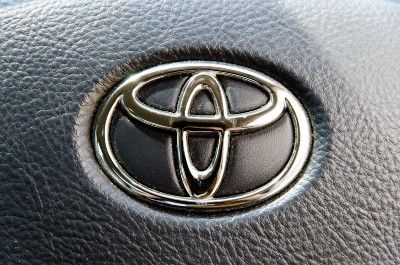Top Class Actions’s website and social media posts use affiliate links. If you make a purchase using such links, we may receive a commission, but it will not result in any additional charges to you. Please review our Affiliate Link Disclosure for more information.
A California couple has filed a class action lawsuit against Toyota, saying 2017 and newer Highlander and Sienna models have a defective transmission.
Dennis and Deborah Murphy say they purchased their 2018 Highlander XL believing it to be safe and reliable. After their purchase, however, they claim they were unhappy to discover that the vehicle possessed a dangerous defect in its transmission.
Just a week after they bought the vehicle, it reportedly started to surge while being driven, putting them at risk for a crash. In their Toyota class action lawsuit, Toyota was aware of the problems with the transmission in Highlander and Sienna vehicles, but concealed the problems from customers. According to the Murphys, Toyota put its own profits ahead of the safety and financial health of drivers.
In an effort to deal with the problem, the Murphys say they took their vehicle to be repaired just one month after they bought it. They explained the problem at a Toyota dealership in Florida outlining the pattern of hesitation and surging they experienced while driving the vehicle.
The Toyota transmission problem class action lawsuit states the dealership ran a diagnostic test showing that the vehicle suffered no abnormalities and was working normally, in contrast to the Murphys’ experience.
A mere four months later, in January 2019, the Murphys were back at the dealership, saying that the problem persisted, according to their complaint. The dealership then supposedly ran another diagnostic test, which also revealed no issues.

However, during the April visit, a senior technical service advisor allegedly told Murphy the problems he was describing were common to Highlanders and other models.
The plaintiffs state that the service adviser told him both Toyota and dealers were well aware of the problem.
After even more problems, Murphy again returned to the dealership on May 29, 2019, to tell the dealer he was still experiencing the same problem. He says that at that time, he requested that his vehicle be repaired or bought back by the manufacturer.
The dealer did not perform any repair services, according to the Toyota class action lawsuit, but instead scheduled an inspection by a Toyota representative.
Allegedly, the inspector told Murphy he “found it to perform like a known good vehicle” and did “not exhibit any warrantable concern.”
Despite this allegedly clean bill of health given to the vehicle, the Toyota operations manager who inspected the vehicle did explain that “today’s vehicles … are driven by a wire which means they do not have a throttle cable so they may exhibit very slight lag due to ECM processing,” the lawsuit says.
He allegedly noted that the system may not meet a customer’s desired performance, but “a little extra pressure on the gas pedal improves responsiveness and customer satisfaction can usually be obtained.”
Then, on Oct. 11, 2019, the plaintiff took the vehicle to a different Toyota dealer, told them of the persisting problem, and received a different answer. He says he was told that the problems were caused by failure on transaxle assembly, so he replaced the transaxle assembly and associated parts.
The Murphys recount that this repair did not fix the problem, and instead made it worse. They say the original problem and the repair made the vehicle unsafe to drive.
Toyota touted the Direct Shift-8AT transmission at issue in the Murphys’ claims as a new and improved transmission that would allow the accelerator to be operated smoothly and quickly, creating an “‘as desired’ direct driving feel,” according to the Toyota class action lawsuit. However, the Murphys say the transmission does not perform this way, asserting that the reality is inconsistent with Toyota’s advertisements.
According to the Toyota Highlander transmission defect class action lawsuit, Toyota is aware of the problem but has not taken sufficient steps to repair it. Though it hasn’t always made legal news, the Murphys note that many consumers have taken issue with the problem and stress that the company did or should have conducted testing on the functionality of the vehicle that should have revealed the problems with it.
Have you had transmission problems with your Toyota? How did you handle it? Share your experiences in the comments below.
The Murphys are represented by Steven R. Weinmann, Tarek H. Zohdy, Cody R. Padgett and Trisha K. Monesi of Capstone Law APC; Russell D. Paul and Amey J. Park of Berger Montague; Lionel Z. Glancy, Mark L. Godino and Danielle L. Godino of Glancy Prongay & Murray LLP; and Mark S. Greenstone of Greenstone Law PC.
The Toyota Highlander, Sienna Transmission Defect Class Action Lawsuit is Dennis and Deborah Murphy v. Toyota Motor Sales USA Inc., et al., Case No. 2:20-cv-05892, in the U.S. District Court for the Central District of California.
ATTORNEY ADVERTISING
Top Class Actions is a Proud Member of the American Bar Association
LEGAL INFORMATION IS NOT LEGAL ADVICE
Top Class Actions Legal Statement
©2008 – 2024 Top Class Actions® LLC
Various Trademarks held by their respective owners
This website is not intended for viewing or usage by European Union citizens.
















67 thoughts onToyota Class Action Lawsuit Alleges Transmission Defect
Visited the Toyota dealer twice due to harsh vibration of console originating from the drivetrain. This normally occurred in early morning cold starts. No warnings, no cautions, no error codes. Toyota said it couldn’t duplicate the vibration. Requested a transmission fluid change. It was completed and dealer stated the (old) fluid in the transmission was lower than expected. There were no leaks and dealer wasn’t concerned about the low fluid. I had a 100K extended warranty on the vehicle. Recently at 109K, the transmission is hard broke. Estimate for repair is $7900 plus tax. Called Toyota for assistance and got the stiff arm because dealer couldn’t duplicate the issue.
2019 Toyota Highlander started making a whining noise at about 30 mph and up. Just got a call from my mechanic stating it is a transmission issue. Sounds like a bearing issue within the transmission. The recommendation is to replace the transmission. This is not a Toyota dealership so I will make an appointment with the dealership to see what they say. Not really looking forward to replacing a transmission on a car with 70,000 miles.
2014 Camry Toyota dealer lied many times and said that their was nothing wrong with the transmission. I didca ton of research on my own and found out Toyota put bad Torque converters in all 2012-2016 Camrys. Dealer still said there’s nothing wrong but finally replaced the Torque converter which did not help because the Torque converter dumped tons of metal shards into the transmission but Toyota refused to replace the tranny. I traded it for a Honda Accord and never looked back. Never again Toyota. The LIES were simply ridiculous.